Blockchain Academy
BLOCKFIVE.ONE provides a range of Blockchain trainings.
All trainings and workshops will be provided in english and german language.
Target audience for Blockchain skills:
Innovation Manager
CIOs
IT Professionals
Executive Management
Professors, Teachers and Educators
Development Manager
Accountants & Controller
Entrepreneurs
Business Owner
Sales & Marketing Professionals
… and individuals who want to learn more about Blockchain and Distributed Ledger Technology (DLT)
Our service offerings:
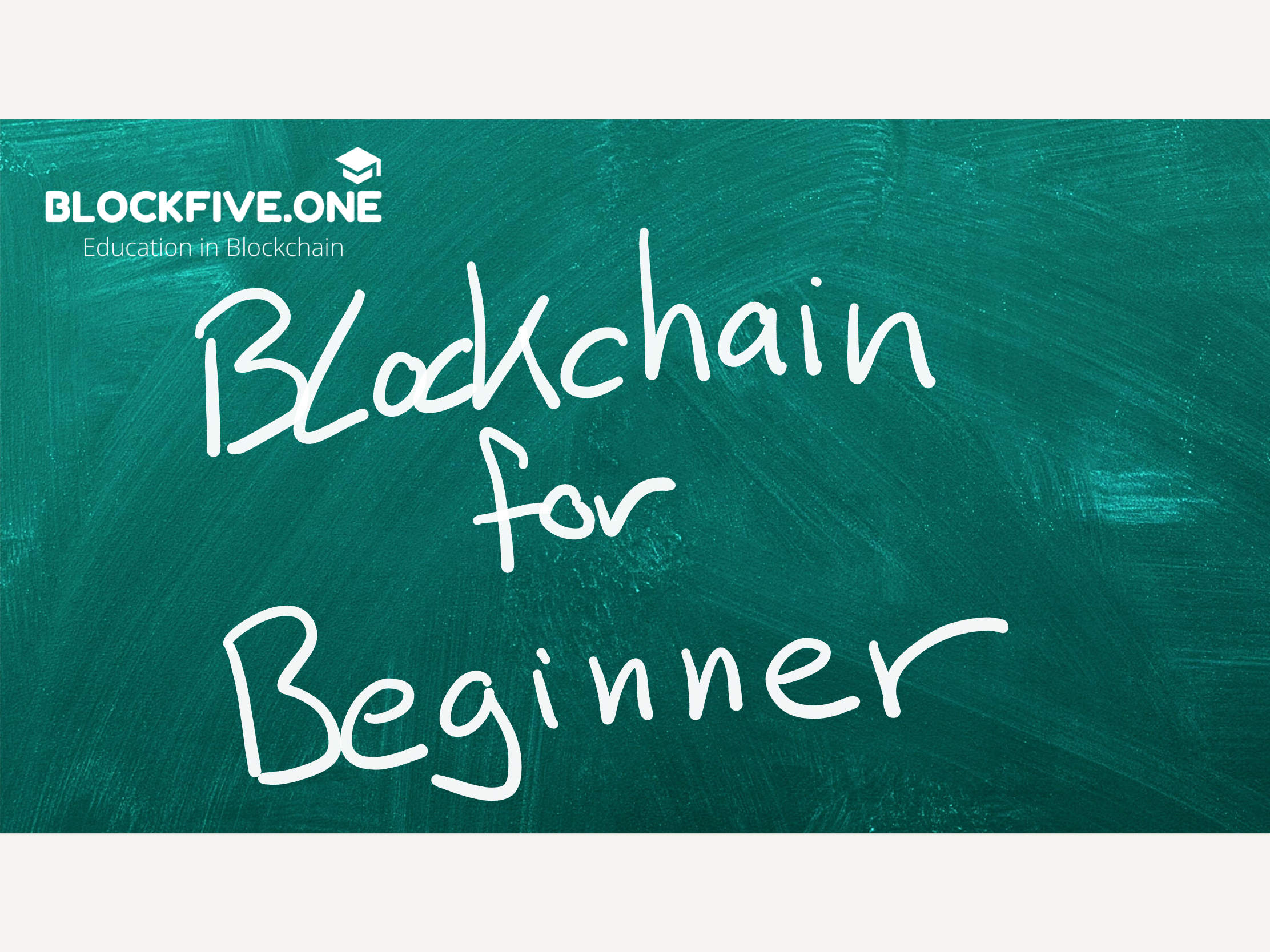
Blockchain for Beginners (2h)
An introduction to Blockchain Technology
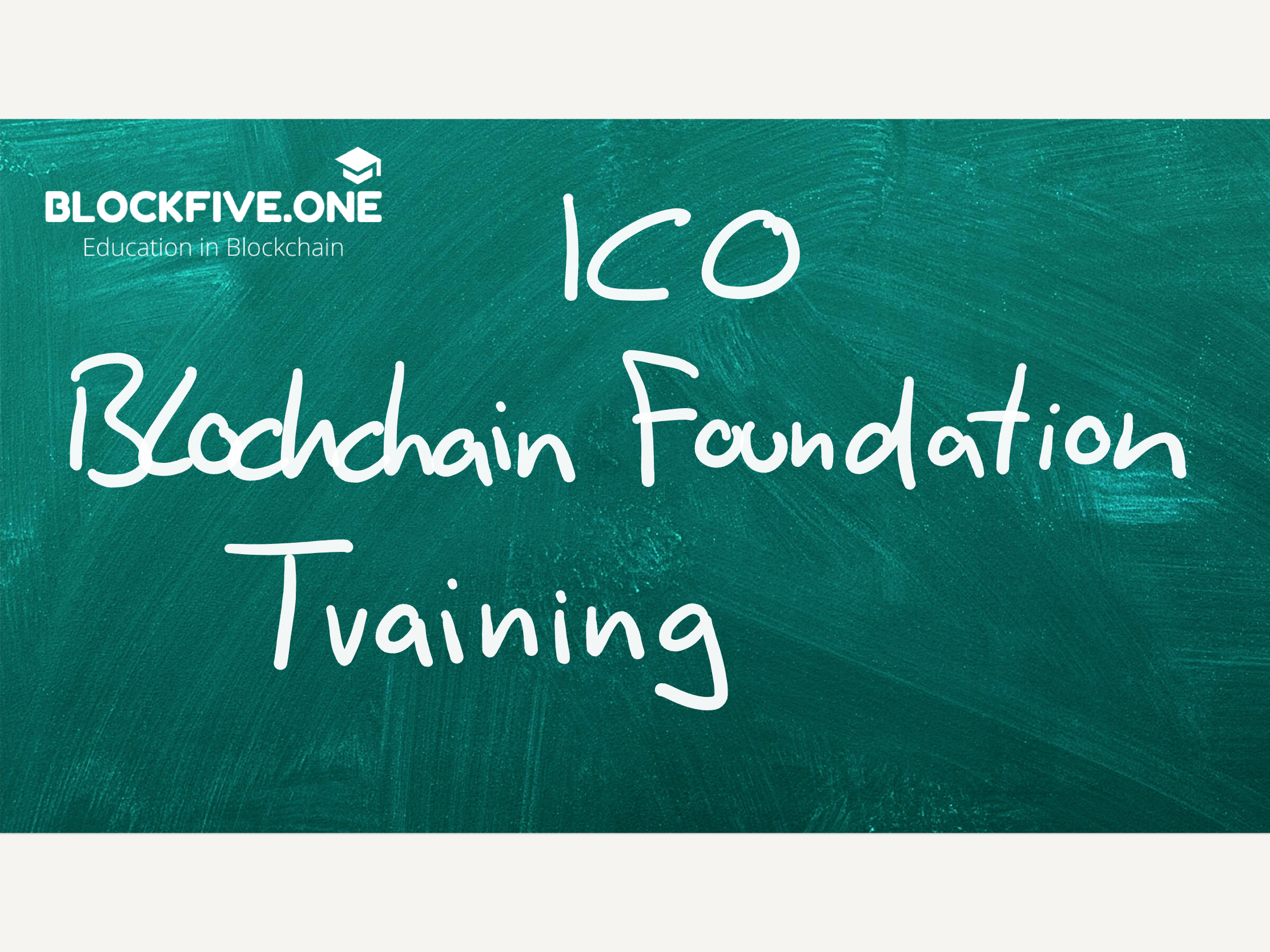
ICO Blockchain Foundation Training
Official ICO Blockchain training (2 Days)
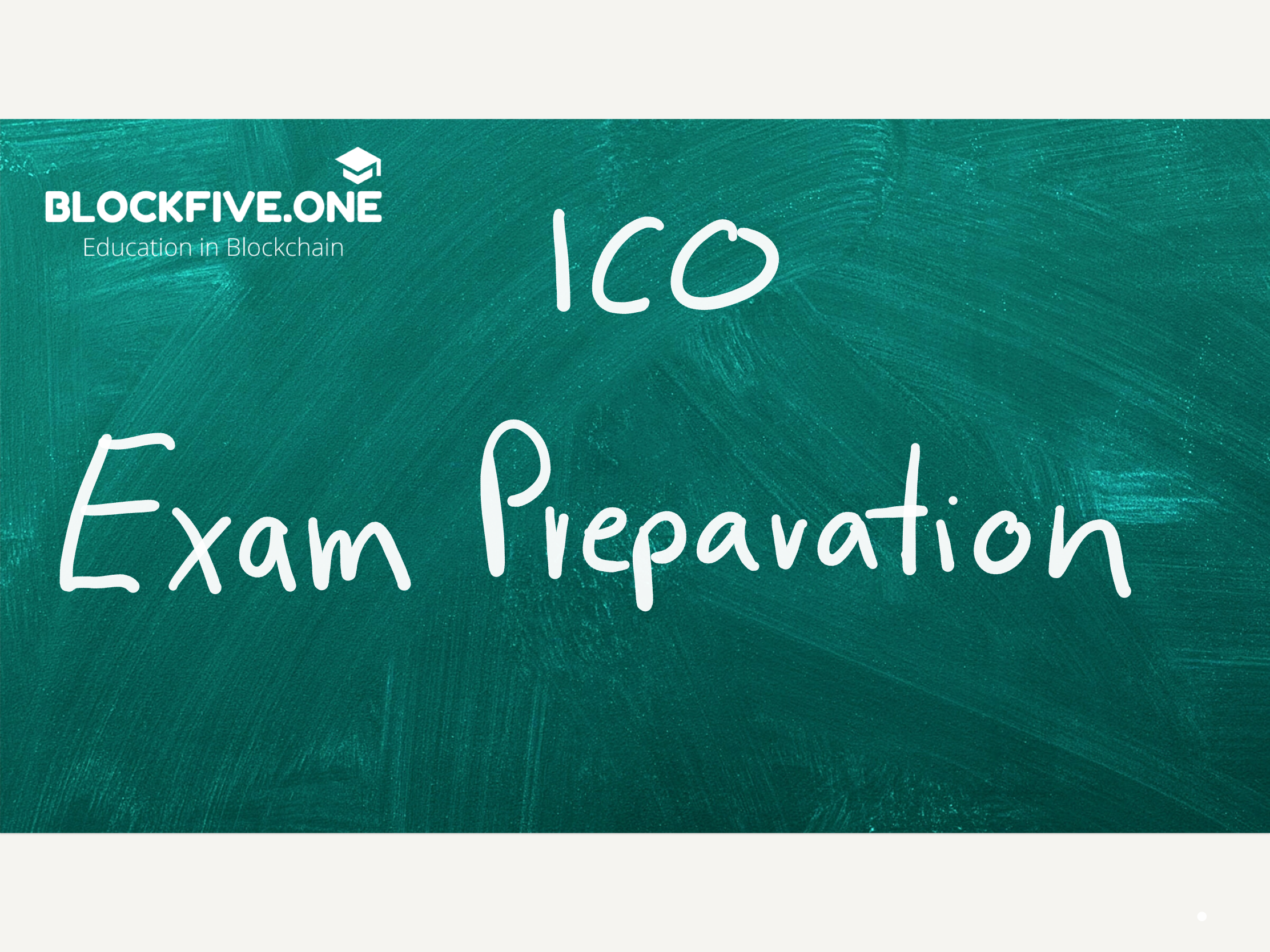
ICO Exam Preparation
Preparation for the ICO Blockchain exam
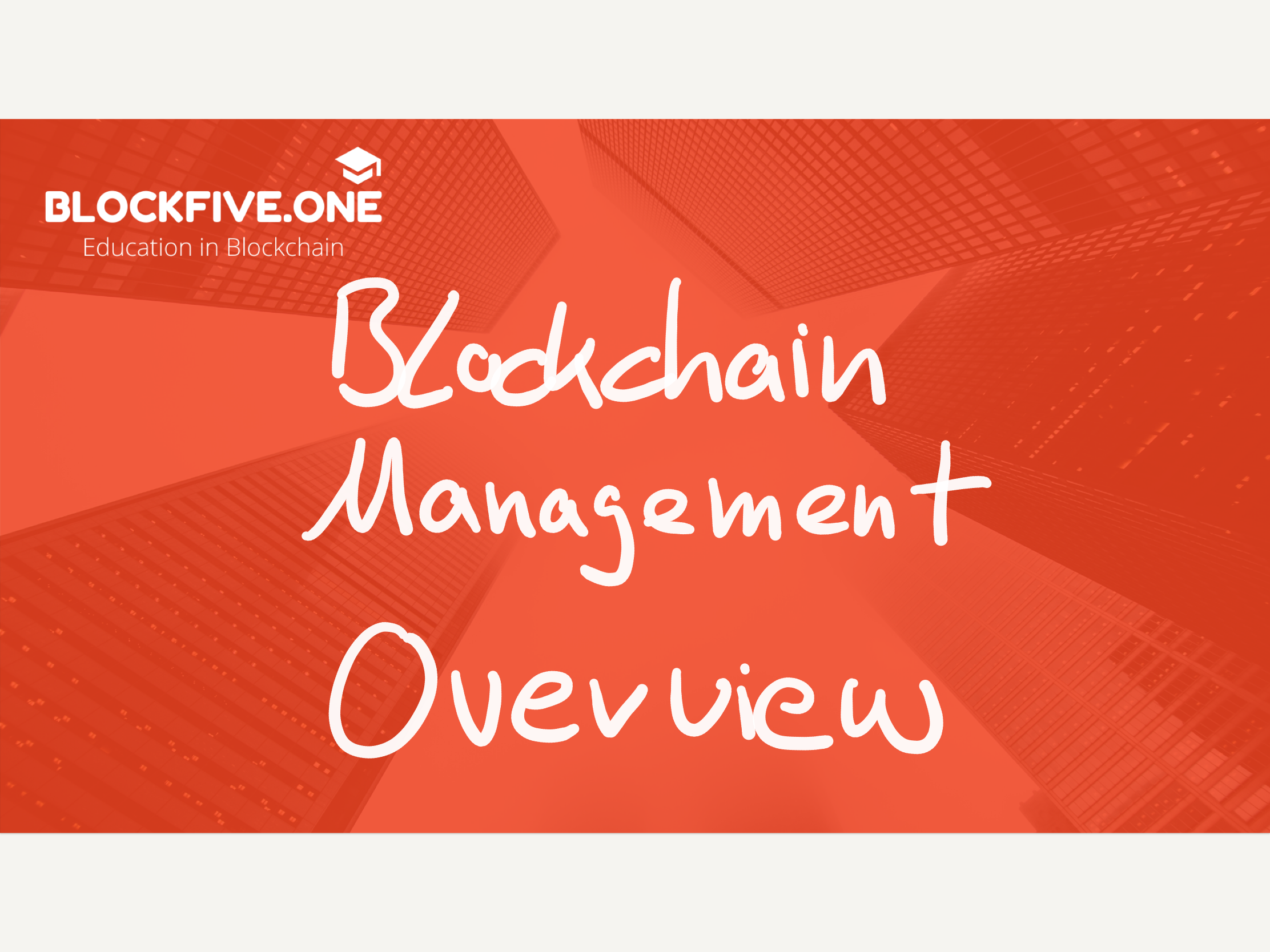
Blockchain - Management Overview
This course provides a general overview of Blockchain Technology for Business Professionals
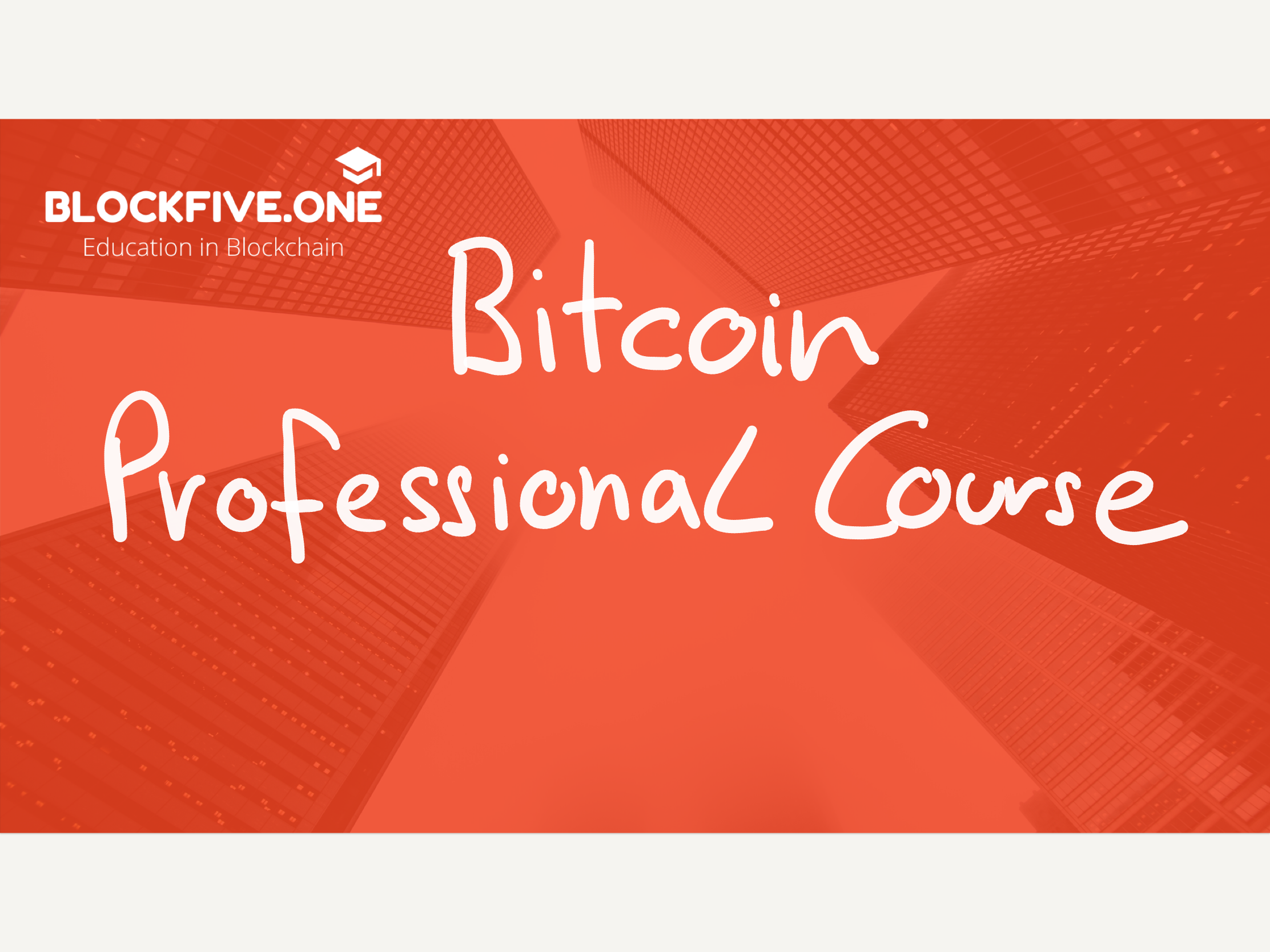
Certified Bitcoin Professional Course
Covering 33 topics in the six domains of Bitcoin Knowledge
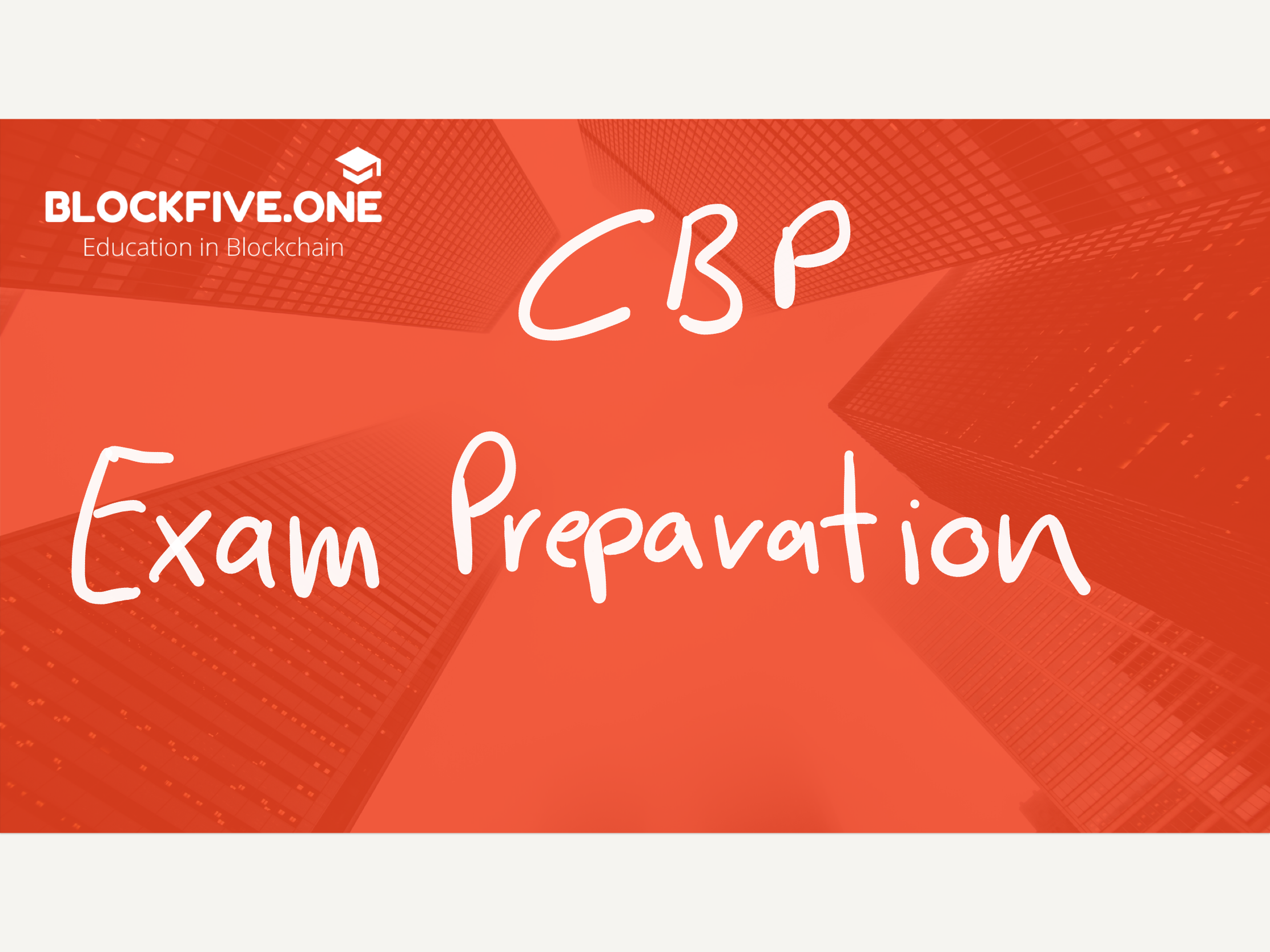
CBP Exam Preparation
Preparation for the CBP exam
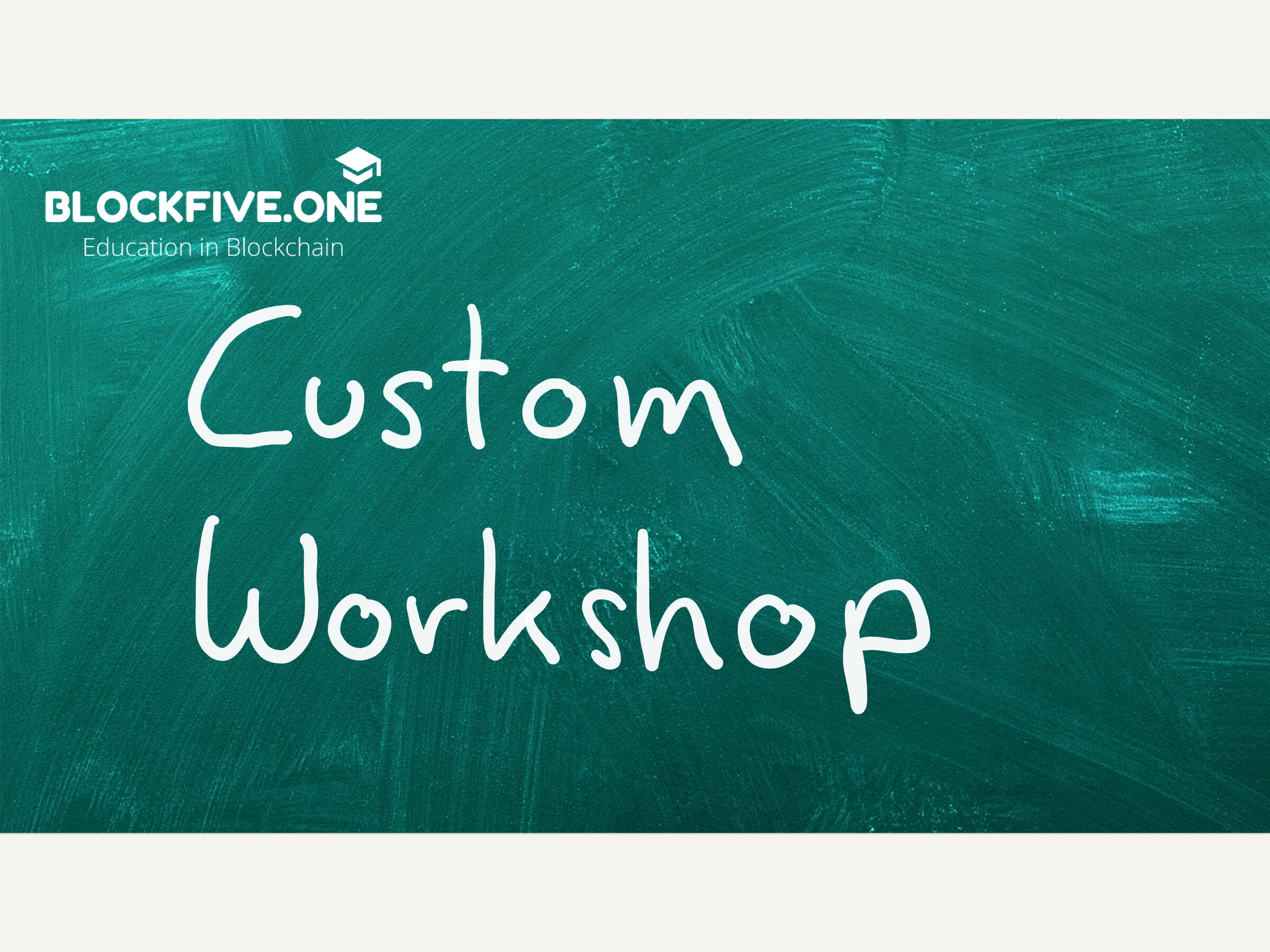
Custom Workshop
Dive into Blockchain via a Custom Workshop according to your special needs.
„Every informed person needs to know about Bitcoin because it might be one of the world’s most important developments.“
Leon Luow, Nobel Peace prize nominee
Industries most affected by Blockchain disruption*:
Banking
Banking is just the beginning. blockchain as as way to expedite back office functions and settlement could cut up to $20B in middleman costs
Cross-border transaction costs can be reduced and the efficiency of cross-border payments can be improved (e.g Ripple) .
Micro and mobile payments solution can be provided globally
Real Estate
Pain points for buying and selling property include a lack of transparency during and after transactions, copious amounts of paperwork, possible fraud, and errors in public records. Blockchain offers a way to reduce the need for paper-based record keeping and speed up transactions — helping stakeholders improve efficiency and reduce transaction costs on all sides of the transaction.
Real estate blockchain applications can help record, track, and transfer land titles, property deeds, liens, and more, and can help ensure that all documents are accurate and verifiable.
Security
The whole basis of blockchain is to create decentralized and ultimately secure ways of storing, verifying, and encrypting data, so naturally, security is going to feel the force of this new technology. Decentralized data storage in the cloud eliminates many of the problems of data hacks we’ve seen major players dealing with over the last few years. Advanced cryptography based on blockchain technologies can create virtually unhackable data encryption.
Charities & Aid Organisations
Many people want to donate to charity organizations, but worry about whether their money will actually reach the intended recipients. Charities can create trust through smart contracts and online reputation management systems that can help donors trust that their money is going to the specified people and places. And the U.N.’s World Food Programme is implementing a blockchain based system that allows refugees to get food with an iris scan, instead of relying on cash, credit, or vouchers, all of which can be stolen.
Agriculture
In agriculture, blockchain promises a single source of truth about the state of your farm, inventory, and contracts. Many farmers today utilize a combination of software, apps, spreadsheets, pen and paper, and memory to record their data. That effort is then multiplied when farm service providers require information and data in order to deliver on the service they were hired to perform. By providing a single source of data for a farm, blockchain minimizes the strain of record-keeping and maintaining multiple record systems. Blockchain can ultimately save time and energy in the agriculture value chain.
Pharma
Pharma isn’t known for being a fast-moving industry. Despite the sector’s focus on innovation and problem solving, there’s a lot of red tape around clinical testing, FDA approvals, and more.
Using a blockchain ledger can create a more efficient system, opening the door for faster innovation, better regulated production, and smarter medical data security. For instance, research can be published earlier, without scientists worrying about their intellectual property. If a report is published through a blockchain-enabled system, there will be permanent record of its existence, preventing others from claiming it as their own.
Online Music
Several startups are coming up with ways for musicians to get paid directly from their fans, without giving up large percentages of sales to platforms or record companies. Smart contracts can also be used to automatically solve licensing issues, and better catalog songs with their respective creators. Mycelia and Ujo Music are two startups creating blockchain-based solutions in the music industry.
Video Industry
Video is predicted to form 82% of all Internet traffic by 2021, and blockchain may play a significant role by decentralizing the video infrastructure. Decentralizing video encoding, storage, and content distribution will dramatically reduce the cost of video traffic by tapping into $30 billion in wasted Internet computing services.
Startups like VideoCoin are already making good on the promise of freeing up this capital, which will allow entirely new and innovative ecosystems of video apps to emerge on the market.
Healthcare
Healthcare institutions suffer from an inability to securely share data across platforms. Better data collaboration between providers could ultimately mean higher probability of accurate diagnoses, higher likelihood of effective treatments, and the overall increased ability of healthcare systems to deliver cost-effective care.
Use of blockchain technology could allow hospitals, payers, and other parties in the healthcare value chain to share access to their networks without compromising data security and integrity.
Voting
Rigged votes and “voting irregularities” could be a thing of the past, as could the threat of rival governments or terrorist organizations hacking the vote. Voting systems secured with blockchain technology would be completely unhackable. From voter registrations to verifying identity to tallying votes, the system would be indisputable. Gone would be the days of recounts and “hanging chads.”
Government
Aside from voting systems, blockchain technologies could be used to help reduce and eliminate bureaucratic red tape and corruption in government agencies. For example, welfare, disability, veterans and unemployment benefits could be more easily verified and distributed, eliminating fraud and waste. Smart contracts could ensure that government funds are only released when certain conditions are met whether to contractors or foreign governments in the form of aid. And security, efficiency, and transparency in government functions could be increased across the board.
Education
By nature, academic credentials must be universally recognized and verifiable. In both the primary/secondary schooling and university environments, verifying academic credentials remains largely a manual process (heavy on paper documentation and case-by-case checking).
Deploying blockchain solutions in education could streamline verification procedures, thereby reducing fraudulent claims of un-earned educational credits.
Insurance
Companies like Airbnb, Tujia, Wimdu, and others provide a way for people to temporarily exchange assets — including private homes — for monetary value. The problem is that in the absence of a public record, it has been nearly impossible to insure assets on these platforms.
LenderBot – as an example – is a micro-insurance proof of concept for the sharing economy that demonstrates the potential for blockchain applications and services in the industry. LenderBot, which allows people to enroll in customized micro-insurance by chatting through Facebook Messenger, enables blockchain to serve as the third-party in the contract between individuals as they exchange high-value items through the sharing economy.
Internet Advertising
Users who opt in receive fewer, but better targeted ads without the malware and advertisers get better data on theire spending.
Best Example: Brave Browser
Instead of a middleman like Google or Facebook’s ad arm, advertisers will list directly onto Brave’s blockchain-based browser. Users who opt in receive fewer, but better targeted ads without the malware. And advertisers get better data on their spending.
Retail
Some of the issues in buying and selling real estate are bureaucracy, lack of transparency, fraud, and mistakes in public records. Using blockchain technology can speed up transactions by reducing the need for paper-based record keeping. It can also help with tracking, verifying ownership, ensuring accuracy of documents, and transferring property deeds. Ubitquity, is a blockchain-secured platform for real estate record-keeping that is an alternative for legacy paper based systems.
Forecasting
The blockchain is set to change the entire approach to research, consulting, analysis and forecasting. Online platforms like Augur are looking to create global decentralized prediction markets. These technologies can be used to place and monitor bets on anything from sports to stocks to elections in a decentralized way.
Legal
Storing and retrieving documents as well as verifying their provenance are key functions of the legal industry. With blockchain technologies, questions over the legality of wills or other legal documents could be eliminated by securely storing and verifying documents. Also, questions of digital inheritance, especially with the rise of cryptocurrencies, can be eliminated with blockchain secured documents.
Startups & Crowdfunding
Crowdfunding has become a popular method of fundraising for new startups and projects in recent years. Crowdfunding platforms exist to create trust between project creators and supporters, but they also charge high fees. In blockchain-based crowdfunding, trust is instead created through smart contracts and online reputation systems, which removes the need for a middle-man. New projects can raise funds by releasing their own tokens that represent value and can later be exchanged for products, services, or cash. Many blockchain startups have now raised millions of dollars through such token sales. Although it’s still early days and the regulatory future or blockchain-based crowdfunding is uncertain, it’s an area that holds a lot of promise.
Rental & Ride Sharing
It seems like startups like Airbnb and Uber have already disrupted these markets, but blockchain could create true peer-to-peer networks for rentals and sharing of goods and services that would eliminate the need for the middle-man company, which naturally takes a cut of the fee. In fact, there’s no reason these peer-to-peer networks couldn’t expand to renting and borrowing just about anything from books to tools to furniture and beyond.
Supply Chain Management
One of the most universally applicable aspects of blockchain is that it enables more secure, transparent monitoring of transactions. Supply chains are basically a series of transaction nodes that link to move products from point A to the point-of-sale or final deployment.
With blockchain, as products change hands across a supply chain from manufacture to sale, the transactions can be documented in a permanent decentralized record — reducing time delays, added costs, and human errors.
Energy Management
Energy management is another industry that has historically been highly centralized. In the US and UK, to transact in energy one must go through an established power holding company like Duke Energy or National Grid, or deal with a re-seller that buys from a big electricity company.
Transactive Grid – as an example – uses Ethereum blockchain technology to enable customers to transact in “decentralized energy generation schemes,” effectively allowing people to generate, buy, and sell energy to their neighbors. LO3 Energy also has projects that include Brooklyn Microgrid and Project Exergy, the latter being a proof-of-concept for harnessing excess heat expelled by computers.
Cloud Storage
Data on a centralized server is inherently vulnerable to hacking, data loss, or human error. Using blockchain technology allows cloud storage to be more secure and robust against attacks. Storj is one example of a cloud storage network using the technology.
Public Benefits
The public benefits system is another sector that suffers from slowness and bureaucracy. Blockchain technology can help assess, verify, and distribute welfare or unemployment benefits in a much more streamlined and secure way. GovCoin is a UK-based company that is helping the government to distribute public benefits using blockchain technology. The blockchain is also a good contender for implementing a basic income. Circles is a project working on developing a blockchain-based technology for implementing a universal basic income.
Retail
When you shop, your trust of the retail system is tied to the trust of the store or marketplace. Decentralized blockchain-based retail utilities work differently: they connect buyers and sellers without a middleman and associated fees. In these cases, trust comes from smart contract systems, the security of exchanges, and built-in reputation management systems. One startup disrupting the retail space is OpenBazaar.
Source:
CBINSIGHTS, Research Briefs – April 2, 2020 – „Banking Is Only The Beginning: 58 Big Industries Blockchain Could Transform“
Forbes, Bernhard Marr – Jul 16, 2018 – „Here Are 10 Industries Blockchain Is Likely To Disrupt“
FUTURETHINKERS – June 16, 2017 – „19 Industries The Blockchain Will Disrupt“
Overview Blockchain certifications:
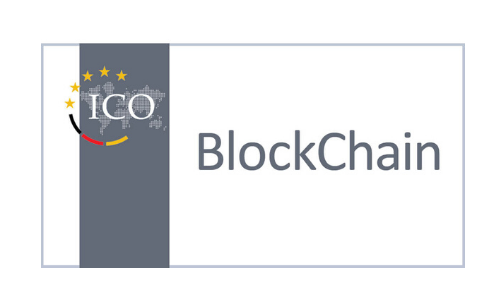
ICO - International Certification Organisation
ICO Certified Blockchain Professional
ICO is providing a Blockchain certification for persons: the ICO Blockchain Professional role certificate is awarded.
The exam is either online or paperbased (limited till 31.12.2020)
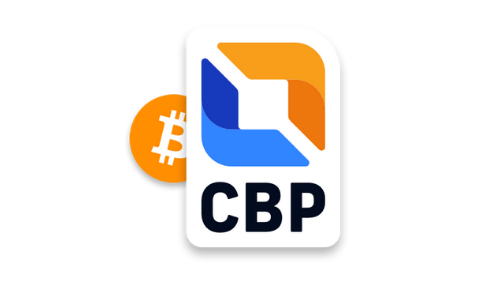
C4 - CryptoCurrency Certification Consortium
Certified Bitcoin Professional (CBP)
A Certified Bitcoin Professional is knowledgeable about the Bitcoin blockchain, Bitcoin transactions, and how the Bitcoin network operates. CBPs are able to apply Bitcoin technology to their professional area of expertise and understand privacy aspects, double-spending, and other issues that relate to the currency.
Exam: Multiple Choice (75 questions) in 33 topics with a time limit of 20 min.
You are a Trainings Organisation, a Training Provider, an Internal Trainings Academy, a public or private University, a Learning Institute or any other educational Institution searching for …
Blockchain Knowledge
We have the know-how to provide various trainings in the area of Blockchain & Distributed Ledger Technologies
Blockchain Trainings
We have trainers and training capabilities to provide various standard and individual training either online or on location.
Concepts & Material
We are providing proofen trainings concepts and material aligned with your training strategy and your brandings.
get in contact with us
We are providing flexible solutions for our B2B and B2B2C partners and are very experienced especially in the DACH region.
